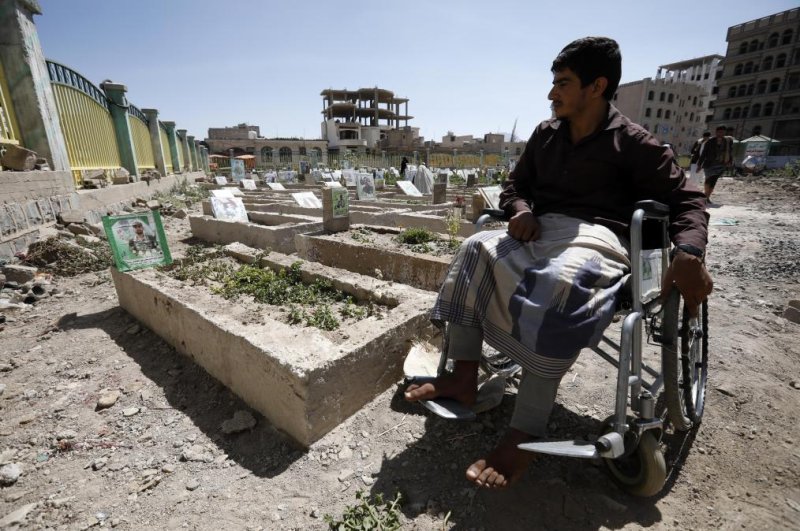An injured Yemeni man is seen in a wheelchair at the grave of a relative in Sanaa, Yemen, on November 1. File Photo by Yahya Arhab/EPA-EFE
Dec. 3 (UPI) -- At least 4.5 million people are suffering throughout Yemen in the background of a civil war that's been going for more than five years, Amnesty International said in a new analysis Tuesday.
The humanitarian organization said in the study almost 100 people were surveyed over a six-month period and spoke of many Yemenis suffering from a range of disabilities. Amnesty said support for the disabled has been "scant" while outside donations have fallen well short of what's needed.
The 52-page report is titled, "Excluded: Living With Disabilities in Yemen's Armed Conflict."
"Yemen's war has been characterized by unlawful bombings, displacement and a dearth of basic services, leaving many struggling to survive," Rawya Rageh, senior crisis adviser at Amnesty International, said in a statement.
"The humanitarian response is overstretched, but people with disabilities -- who are already among those most at risk in armed conflict -- should not face even greater challenges in accessing essential aid."
Yemen spiraled into violence in 2014 when Houthi rebels, supported by Iran, overwhelmed Yemeni government forces and took control of the capital, Sanaa. The government, backed by Saudi Arabia, has waged war to gain back control of the battle-scarred country.
The report said thousands of civilians have been killed in the fighting and another 14 million risk starvation in what the United Nations has called one of the world's worst humanitarian crises.
Many Yemenis with disabilities said they have endured exhaustive displacement journeys without critical items like wheelchairs, crutches or other assistance -- and are only getting by with the help of friends and relatives.
"I was transferred from bus to bus -- in total four buses," disabled resident Migdad Ali Abdullah told Amnesty International. "My neighbor carried me."
The organization said it's learned that others with disabilities were left behind to face violence and were separated from family who couldn't help them.















